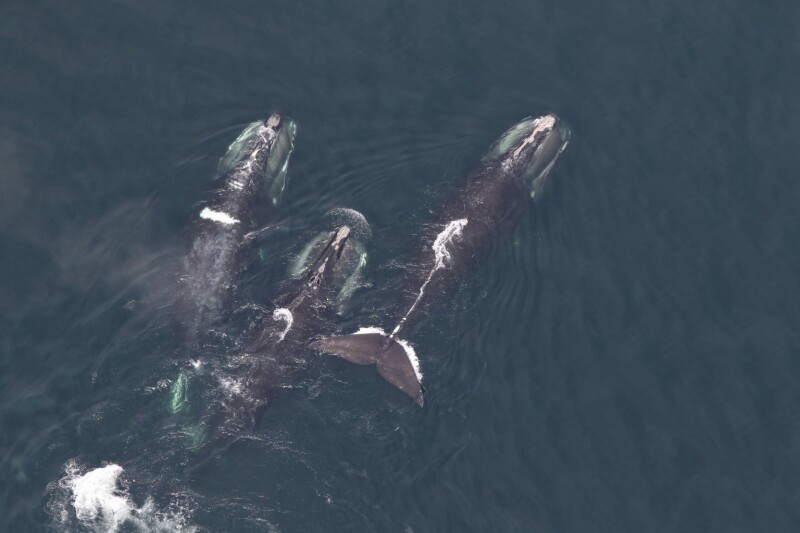The House Appropriations Committee moved on July 14 to block the National Oceanic and Atmospheric Administration from implementing new vessel speed limits to protect North Atlantic right whales. The proposal has mobilized opposition across the U.S. maritime industry.
The committee’s markup session for NOAA includes language that would delay expanding speed limit zones to protect North Atlantic right whales off the U.S. East Coast until more monitoring technology is available.
With a population estimated at only around 340 animals, right whales are one of the world’s most endangered species. Ship strikes and entanglement in fishing gear are considered leading causes of mortality.
The proposed NOAA rule changes would extend 10-knot speed limits that now apply to vessels longer than 65’, down to boats 35’ to 65’ in areas when NOAA determines right whales are present based on the agency’s tracking of whale movements.
Those whale advisory areas could also extend farther offshore. That’s provoked sustained opposition from the recreational boating and fishing industries, charter fishing captains, port operators and pilotage associations.
Over 90,000 messages flooded into NOAA during a public comment period that ended Oct. 31, said Janice Coit, NOAA’s assistant administrator for fisheries, during a June hearing before the House Natural Resources Subcommittee on Water, Wildlife and Fisheries. Spokesmen for those objectors testified.
Enforcing 10-knot limits on small vessels during poor weather and sea conditions would force boat operators “to risk their vessels and their own lives … at the speed of a bicycle,” said Fred Hugelmeyer, president and CEO of the National Marine Manufacturers Association.
Meanwhile a new petition from environmental groups under consideration at NOAA is seeking similar speed restrictions approaching Gulf of Mexico ports to protect the Rice’s whale, another highly endangered species that NOAA estimates may have only 50 surviving now in the Gulf.
The Florida Ports Council said that proposal would effectively halt “all nighttime vessel traffic, and significantly reduce daytime vessel speeds, impacting Port Tampa Bay, SeaPort Manatee, Port Panama City and Port of Pensacola.”
“It’s as if NOAA wants Florida to hang up a ‘closed for business’ sign,” said Mike Rubin, president and CEO, Florida Ports Council. “Florida’s Gulf of Mexico seaports play an enormous role in fueling Florida and are essential suppliers of everything from food to medical supplies, and construction materials to build homes, roads and make ongoing hurricane repairs in southwest Florida.”
Rep. Jerry Carl, R-Ala., was among House Appropriations Committee members who promised to block the speed limits. In its comments to NOAA, the Alabama Port Authority said “a ban on nighttime operations would essentially double the amount of time a vessel must budget for transit” in an out of Mobile, with significant effects on the region’s trade and supply chains.
At the June hearing, Hugelmeyer of the NMMA said, “we expect this to metastasize” with activist groups seeking similar speed restriction measures on West Coast waters.
The July 14 House Appropriations Committee markup session for fiscal year 2024 was a setback for whale protection advocates. The appropriations bill includes funding for the Department of Commerce and NOAA, and language inserted in the bill would block NOAA “from finalizing urgently needed updates to a 2008 vessel speed rule until real-time monitoring technology is implemented,” according to the group Defenders of Wildlife.
Right whale mothers and calves are particularly vulnerable to vessel strikes, with three calves and a first-time mother killed in the last three years, the group said.
The move to extend the speed limit rule to boats less than 65’ length was boosted by several incidents, including a 2021 case when a 54’ charter sportfishing yacht headed home to St. Augustine, Fla., struck and killed a juvenile right whale, despite the captain and mate keeping visual and radar lookouts. They barely made it back to the inlet with eight passengers to ground on a sandbar before sinking, a $1.2 million loss.




